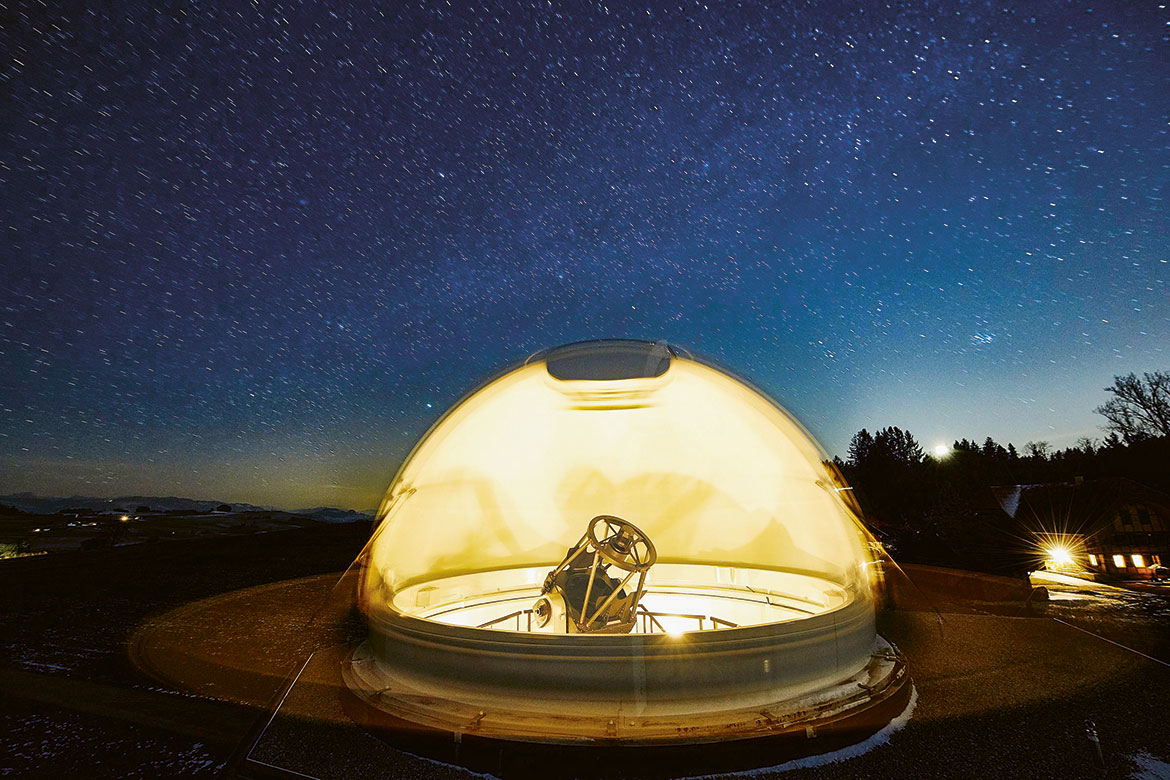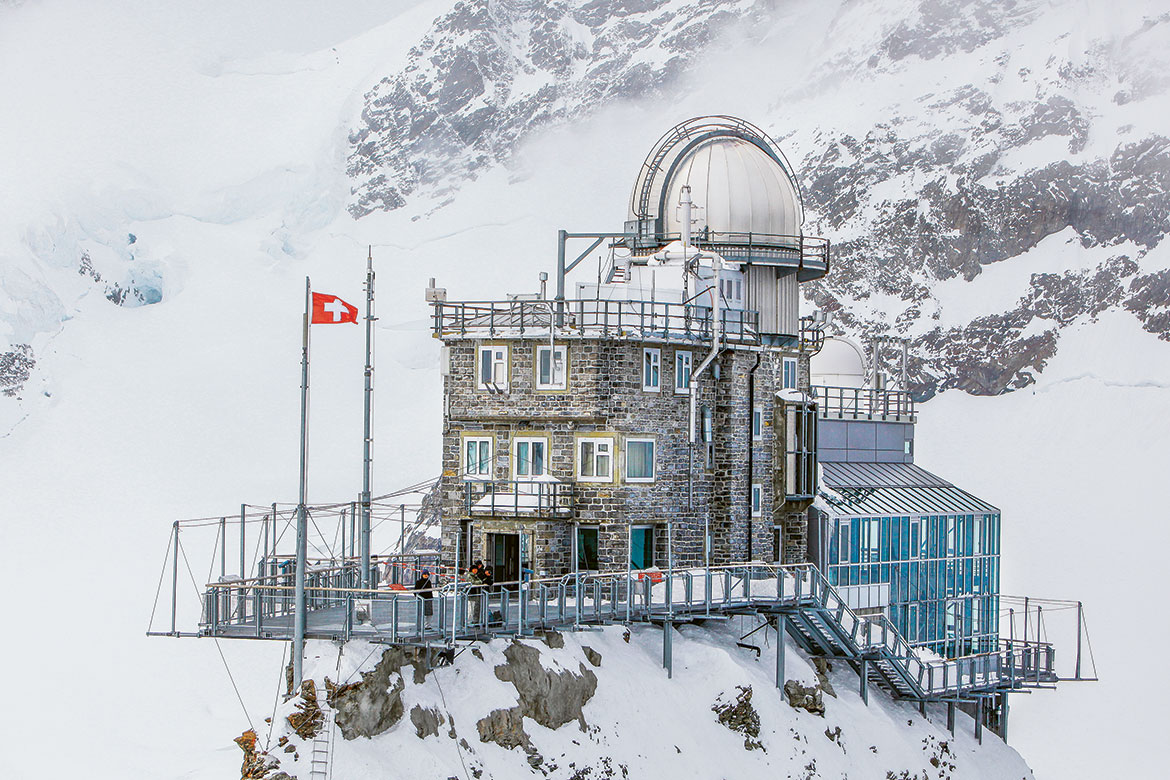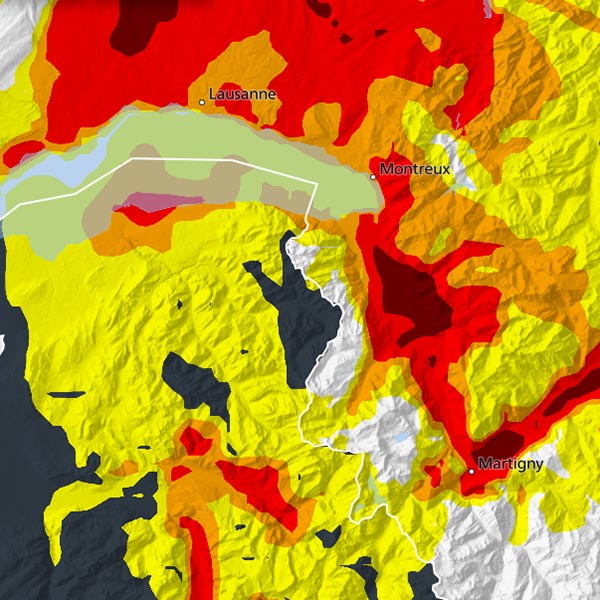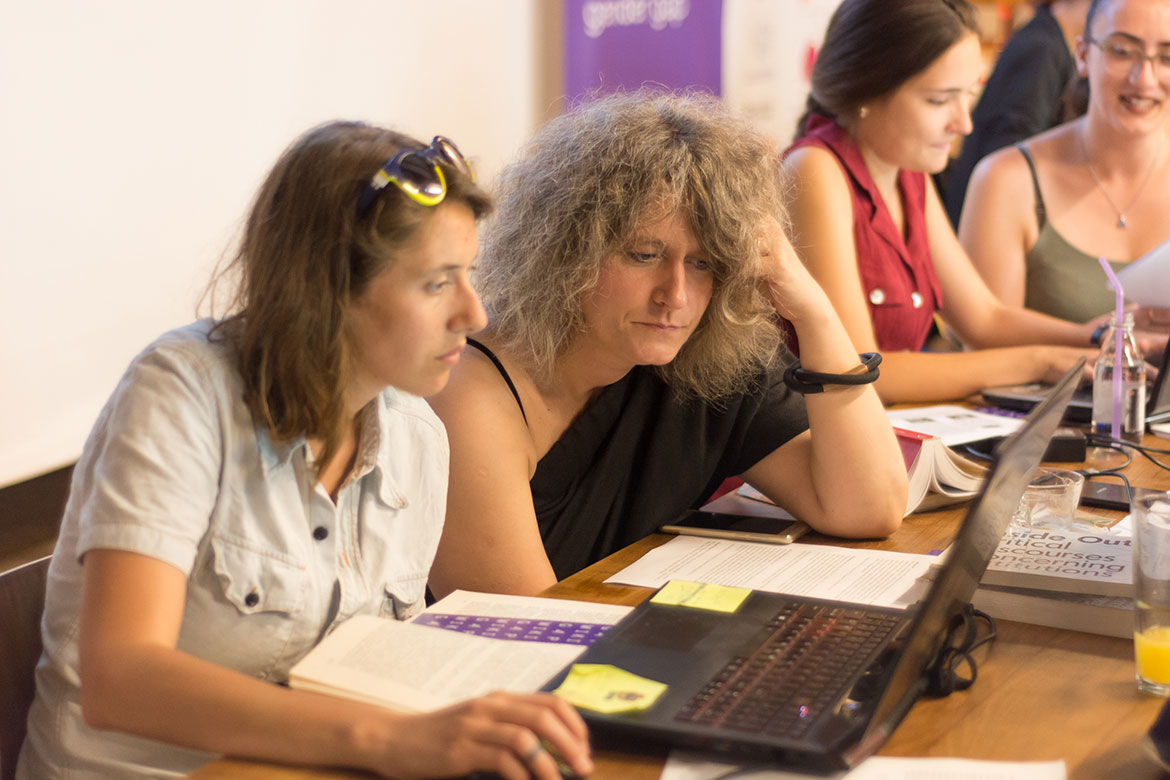SATELLITES
Tracking trash in space

The main dome at the Zimmerwald Observatory. | Photo: Manu Friederich
Innumerable pieces of debris are already whizzing through space. And their number is increasing incessantly. According to Thomas Schildknecht from the University of Bern, the job of capturing large objects, such as rocket stages or malfunctioning satellites, might soon be given to robots – which would at least prevent this particular type of rubbish from colliding and breaking up into thousands of smaller fragments. But capturing these objects can be facilitated by tracking the axis around which they’re rotating, and how fast they’re spinning. So, his team is now developing a method for calculating this information, based on how the debris reflects the light of the Sun. They’re aided in their work by a telescope at the Zimmerwald Observatory in the canton of Bern.



